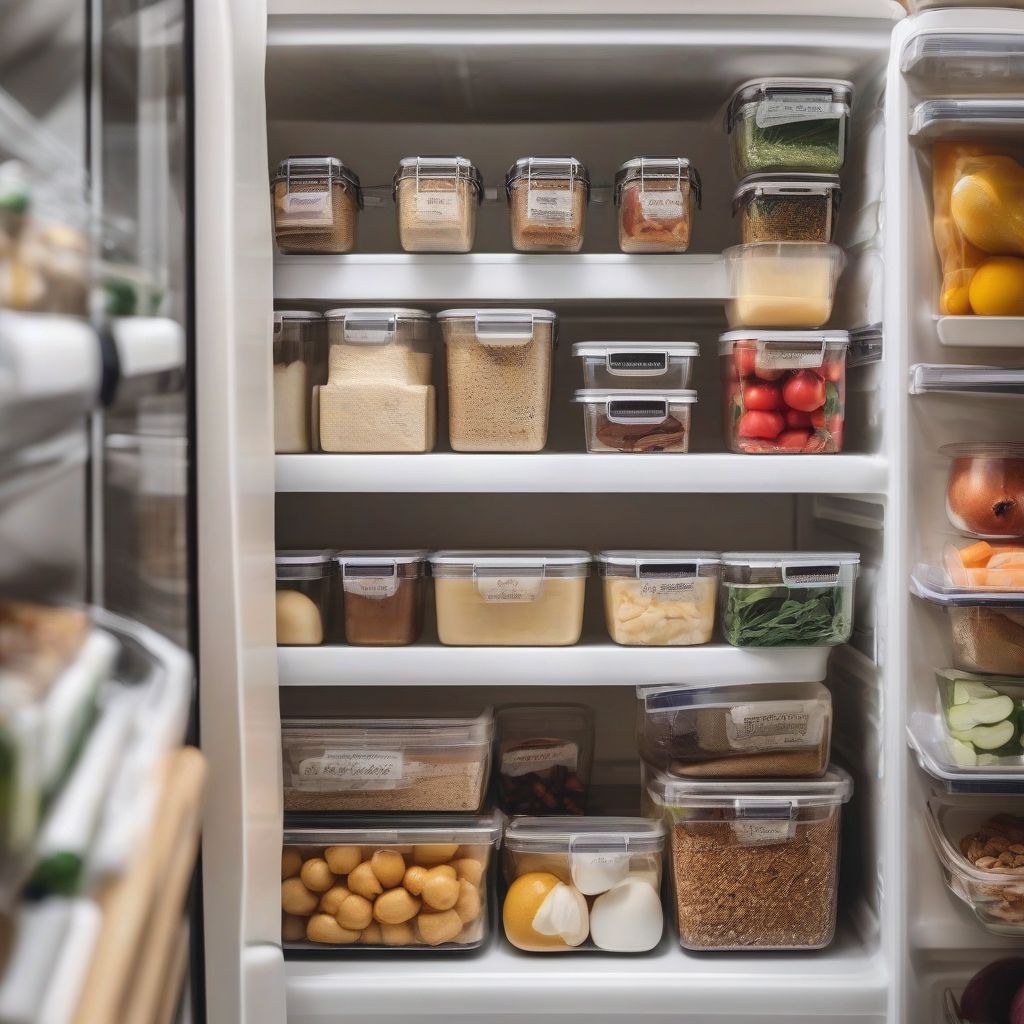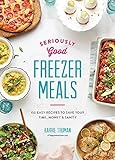Have you ever felt that sinking feeling when you look at your grocery bill and realize you’ve spent way more than you intended? We’ve all been there. The good news is that with a few smart strategies and a shift in mindset, you can significantly reduce your spending on groceries and essential household items without sacrificing a healthy and fulfilling lifestyle. As a registered dietitian and meal prep coach, I’ve helped countless people achieve their health goals while sticking to a budget, and I’m excited to share my expertise with you.
Planning Your Way to Savings
Create a Meal Plan
One of the most effective ways to save money on groceries is to plan your meals for the week. This prevents impulse purchases and ensures you only buy what you need. Start by checking your pantry and fridge for existing ingredients you can use. Then, build your meal plan around sales and seasonal produce. Look for recipes that use similar ingredients to minimize waste.
Master the Grocery List
A well-organized grocery list is your best weapon against overspending. Categorize your list by grocery store sections (produce, dairy, etc.) to make shopping more efficient and avoid backtracking. Stick to your list like glue, resisting the temptation of those strategically placed impulse buys.
Shop Smart with Coupons and Discounts
Don’t underestimate the power of coupons and discounts. Browse store flyers, download coupon apps, and sign up for loyalty programs. Look for deals on staples you use regularly and stock up when prices are low. Just be sure to avoid buying items you don’t need just because they’re on sale.
Smart Shopping Strategies
Compare Prices and Unit Prices
Before you toss an item into your cart, take a moment to compare prices and unit prices. The unit price tells you the cost per ounce, pound, or other unit, allowing you to make an informed decision about the best value. Often, larger packages aren’t necessarily the best deal.
Buy in Bulk (Strategically)
Buying in bulk can save you money, but only if you actually use the entire product before it expires. Non-perishable items like rice, beans, and oats are great candidates for bulk buying. Consider splitting bulk purchases with friends or family to avoid waste.
Embrace Seasonal Produce
Seasonal fruits and vegetables are typically cheaper and more flavorful. Visit your local farmers market or check the grocery store flyers for seasonal deals. Frozen fruits and vegetables are also a budget-friendly option and can be just as nutritious as fresh.
 Saving Money on Groceries
Saving Money on Groceries
Making the Most of Your Food
Reduce Food Waste
Food waste is a major drain on your budget. Plan your meals, use leftovers creatively, and store food properly to extend its shelf life. Consider composting food scraps to reduce waste and enrich your garden soil.
Cook at Home More Often
Eating out can quickly deplete your funds. Make cooking at home a priority. It’s not only cheaper but also healthier, allowing you to control the ingredients and portion sizes.
Pack Your Lunch
Packing your lunch is a simple yet effective way to save money. Prepare your lunch the night before or batch cook meals on the weekend to make weekday lunches a breeze.
Embracing a Frugal Mindset
Saving money isn’t just about strategies; it’s also about cultivating a frugal mindset. Be mindful of your spending habits, prioritize needs over wants, and find joy in simple pleasures.
“A penny saved is a penny earned.” – Benjamin Franklin
This timeless quote emphasizes the importance of even small savings. Every penny you save contributes to your overall financial well-being.
- Kearns, Matt (Author)
- English (Publication Language)
- America's Test Kitchen (Author)
- English (Publication Language)
- Toby Amidor (Author)
- English (Publication Language)
- Truman, Karrie (Author)
- English (Publication Language)
- Amidor MS RD CDN, Toby (Author)
- English (Publication Language)
- Amazon Kindle Edition
- Davidson, Louise (Author)
- Conroy, Robert (Author)
- English (Publication Language)
- Okamoto, Toni (Author)
- English (Publication Language)
- Amazon Kindle Edition
- Chambers, Caroline (Author)
- Amazon Kindle Edition
- Koren, Talia (Author)
Conclusion
Saving money on groceries and essentials doesn’t require extreme measures. By implementing these simple yet effective strategies, you can significantly reduce your spending without sacrificing your health or lifestyle. Remember that small changes can make a big difference over time. Start with one or two tips and gradually incorporate more as you become comfortable. What are your favorite money-saving tips? Share your thoughts in the comments below!











